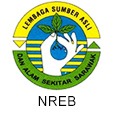President's Message
Greetings to all Indigenous Dayak Oil Palm Smallholders,
Welcome to Sarawak Dayak Oil Palm Planters Association (DOPPA) website, it is my pleasure to pen down some of DOPPA’s struggles in protecting the interest of the Indigenous Dayak Smallholders in Sarawak, Malaysia. Based on Malaysian Palm Oil Certification Council (MPOCC) data end of the year 2022, more than 40,500 independent smallholders are covering an area of more than 234,812 hectares of land in Sarawak planted with oil palm. The smallholders in Sarawak represent 27% of the state’s total agriculture area.
For a long, the indigenous farmers whose main livelihood is farming have been ignored in every discussion of their role in aspects related to climate change amongst other major issues. Therefore, it was inspiring for the indigenous Dayak communities to hear the calls for the inclusion of indigenous peoples to fight climate change at COP15 in Montreal, Canada. The traditional Dayak culture and livelihoods are a perfect example of a sustainable society where we live within the means of what nature provides. It has therefore saddened and angered the Dayak communities to see an ongoing campaign by the European Union (EU) to exclude the Indigenous Dayak smallholders from the entire palm oil supply chain irrespective of the fact that they have already been fully involved in cultivation and on most of the same land for generations but under shifting agriculture oil palm, to improve our livelihoods.
Our ancestors depended on shifting cultivation to grow rice and other food crops. Once the lands were depleted of nutrients, they burnt the residues of the last crop to provide nutrients to the soil while they cleared new areas for farming. However, the extent of clearing new areas was limited as the communities returned to the old cleared areas when it had been rehabilitated.
This shifting agriculture, especially with the burning of spent fields, has been discouraged by the state government as Sarawak state looks to reduce Malaysia’s carbon emissions and establish land rights among the many indigenous tribes, some of which were nomadic.
In this situation where Dayak farmers have to rely on small pieces of land for food and income, the Dayaks have adapted to market conditions, just as in the Western world. Where once the majority of Dayaks grew rice for food and income, the development of global trade in the past 30 years has made it impossible for Dayak farmers, to depend on rice as a cash crop.
It is a matter of fact that in Sarawak today, it is cheaper for Dayaks to buy rice from Thailand where the rice fields are on thousands of hectares, managed with machines that make it very cheap compared to the hand cultivation of the Dayak rice farmers. Many Dayak farmers moved from rice cultivation to rubber cultivation when rubber fetched good prices due to foreign demand. Unfortunately, the rubber industry also crashed, driving the Dayak farmers into poverty.
Thankfully, many of us Dayaks were able to survive as we grew mixed crops on our farms to provide food for ourselves and with the hope to sell some for cash income. These include local favourites like durians, rambutans, and bananas. But the yields are inconsistent. To make matters worse, when the yields are good, there is an over supply in the local farmers’ markets which drives the prices down as all of us farmers, want to move the harvests before they rot.
This explains why, when the Malaysian government started to promote oil palm a cash crop for smallholders, many of us Dayak farmers adopted the crop for cash income and mainly under land that had been previously cleared and used for shifting cultivation. Incidentally, with the move from shifting cultivation to tree crops like rubber and later to oil palm, the natives have in fact helped reduce adverse impact on the environment viz. from manual clearing and planting in about once in 25 years. For once, we had a crop that had consistent foreign demand, which paid well and could be harvested at least once a month.
If we look at the traditional Dayak community today. Many of us are still living in longhouses, which can be described as ‘row houses’ where up to a hundred families live in one long building.The big difference between the days before oil palm and today is that the Dayak communities once lived in longhouses made from bamboo with thatched roofs, and their current modern longhouse is made of concrete with solid roofs. The Dayak communities that entered the palm oil industry in the early days, now also have flat-screen TVs, internet access, electricity, and piped water which were all made possible by the income from palm oil.
In the past two decades of the palm oil industry in Malaysia, many of the Dayaks have been able to afford to send their children to higher education. In this year of 2023, we can count among the children of Dayaks, graduates from local and foreign universities who have become engineers, accountants, doctors, and lawyers and who have also become leaders in our communities and an inspiration to future generations of Dayak youth.
There are many misperceptions of palm oil which have clearly created a negative opinion of the crop today. I quote the two common misperceptions
“Palm oil causes deforestation and is a threat to climate change.”
“Palm oil is responsible for the abuse of human rights, especially land grabs from indigenous peoples.”
These may be popular stories for the EU media to bash palm oil but if one looks at the Dayaks society in Malaysia today, you will see that it is far from the truth.
The Dayaks could indeed have continued with rice and rubber cultivation, both crops which are not under the condemnation of the EU but the low incomes from these crops, would not have paid for their children to advance in society. It is the consistent yield of the oil palm tree that has made it possible for so many of the Dayak people to build modern air-conditioned homes and send their children abroad or locally for further education so that they need not toil under the heat and humidity for an income.
These achievements of the Dayak peoples in Sarawak who have chosen to embrace the palm oil industry are, however, threatened by the increasing call of the EU to ban palm oil imports.The EU’s ambassador to Malaysia has denied that there is a ban on palm oil imports to the EU. Yet we see that member states of the EU have banned palm oil from subsidies granted to sources of renewable energy. If anyone doubts that the EU has banned palm oil, they only need to see the EU Renewable Energy Directive, Annex 4, where even the wastes residues from palm oil production have been excluded with no reasons provided. I can only guess that this is based on the popular stories told by Western non- governmental organisations (NGOs), that have convinced the members of EU’s esteemed Parliament, that palm oil is bad for climate change and indigenous peoples.
The Dayak peoples share the EU’s vision for a sustainable society. Some of the Indigenous Dayak Smallholders have even gone to the expensive way of certifying their farms under the RSPO (Roundtable on Sustainable Palm Oil) in order to share their common views for sustainable palm oil. Unfortunately, most of the indigenous Dayak smallholders in Sarawak cannot afford to pay for NGO certifications. Given the choice of whether to spend our hard-earned income on NGO certification or our children’s college funds, we would prefer to save for our children’s education.
The premium prices paid by the EU for certified sustainable palm oil must be considered a direct investment into the sustainability of palm oil. The indigenous Dayak smallholders cannot be at the mercy of other markets like China, whose demand for low prices condemns us to unsustainable farm practices. In general, the smallholders also should deserve a share of the premium prices.
The EU also should listen to the voices of European industries like the European Vegetable Oil and Protein Meal Industry (FEDIOL), which is urging the policymakers of the EU to engage with palm oil-producing countries to find a common path where the needs of the Union for food, can be met.
As the different levels of policymakers from the European Commission to the European Council and European Parliament debate on the many problems of climate change and how the EU can use its influence to change the course of climate change, they also should take a look at what palm oil can mean to the indigenous Dayaks of Malaysia and also other indigenous tribes and on a bigger scale, what it could mean to decarbonise the EU while respecting the rights of indigenous peoples to sustainable development in Malaysia. The initiative by the EU to prevent climate change is not solely the responsibility of the EU but all of us. Palm oil stakeholders’ engagement in the entire supply chain is necessary to find a common path and collaborate.
Without stakeholder engagement, the EU’s demands on the sustainability of palm oil for whatever end use, have made it impossible for indigenous Dayak landowners to be a part of the sustainability journey. The point in case is the adoption of a “No Deforestation”, “No Peat”, “No Exploitation” (NDPE) commitment by the Malaysian Sustainable Palm Oil (MSPO) standards with a cut off date of 31 December 2019 which we see as a commitment to appease the EU. While this may meet the demands of the EU for sustainable palm oil production, it will exclude the indigenous Dayak farmers from joining the sustainable society for the future.
The Sarawak Dayak Oil Palm Planters Association (DOPPA) representing the indigenous Dayak smallholders has appealed to the MSPO standard for an exclusion for the indigenous Dayak farmers in their No Deforestation, No Peat commitment and the Dayak farmers will continue to fight for our legal right for us to use of our ancestral lands for oil palm cultivation. DOPPA hopes that the EU, will extend the same rights to the Indigenous Dayaks of Sarawak and together to contribute to a sustainable global community.”Dayak-produced” palm oil is a sustainable source of edible oils for the citizens of the EU as certified by the Malaysian Sustainable Palm Oil (MSPO) standards. DOPPA urges the EU with their commitment to the United Nations Sustainable Development Goals to respect the rights of indigenous peoples and to engage with the Indigenous Dayak palm oil smallholders in the
EUs’ goals for a sustainable planet.
Mr. Napolean R Ningkos
PRESIDENT
Sarawak Dayak Oil Palm Planters Association (DOPPA)
18th April 2023.









